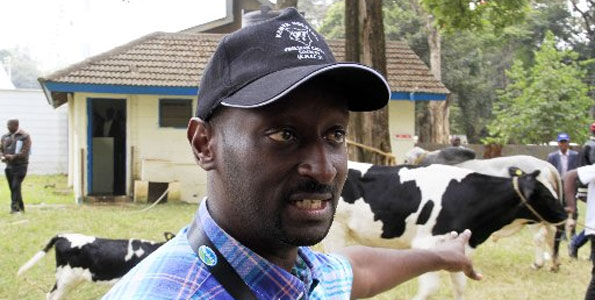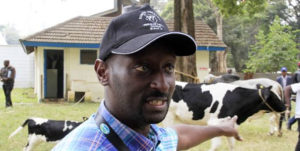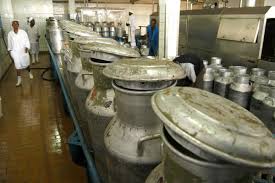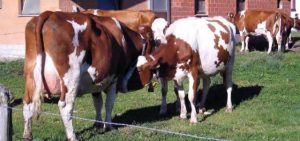Dairy farming remains a profitable enterprise, but many farmers who venture into it are unable to break-even, probably for lack of knowledge.
It is therefore better for a farmer to hear and learn from a fellow farmer who has walked the dairy farming in Kenya path successfully. One such farmer is Victor Mbuthia.
He offered some useful tips to farmers who are practising and those who want to start dairy farming.
“Many farmers are not achieving much in the dairy industry because they lack knowledge or they assume some of the basic things that they need to know to make their business profitable,” he said.
Mr Mbuthia, the owner of Bushey Farmer in Nanyuki, sells milk and heifers. A heifers goes for about Sh. 250,000, with current demand outstripping supply.
He says the first step towards becoming successful at dairy farming in Kenya is to identify the best breed.
Additionally, a good dairy cow’s udder must be firm and not sagging.
“A sagging udder is prone to injuries as the cow will be sweeping it down as it walks,” said the farmer who keeps the Holstein Friesian variety.
To succeed in dairy farming in Kenya, farmers should also select breeds that have a straight top line as this is essential in supporting the cow’s weight.
A good breed should also have strong feet. It is paramount that one selects a variety that has a history of long life.
Mr Mbuthia recommends high quality dairy meal to feed the animals. It is important that the feeds are professionally tested for nutritional value as this has a direct impact on the cow’s productivity.
He urges farmers practicing dairy farming in Kenya and who make their own feeds to get advice from animal nutritionists who will give them the right formula for making the products, based on an animal’s nutritional needs.
These can be tested in the government laboratory at the Kenya Agricultural Livestock and Research Institute, said Mr Mbuthia.
For foundation feeds such as forage (including silage, lucerne and boma rhode grass), breeders should grow their own to manage the high cost of meals.
“There are two planting seasons in a year which require proper planning to ensure stocks last up to the next season,” he noted.
Dairy cows should be fed with approximately 18 kilogrammes of dry matter in a day. It can be increased when the cow is lactating.
According to experts on dairy farming in Kenya, the more a cow feeds on dry matter, the more milk it produces daily. A cow should drink 80 to 100 litres of clean water daily.
An efficient farmer spends a minimum of two hours every day to inspect his animals, ensuring that they drink water and feed properly as well as chew cud. Veterinary doctors should only be called when a cow shows signs of illness.
And because a bull is not profitable to a dairy farmer, sexed semen can be used to increase the chances of getting a heifer.













good stuff